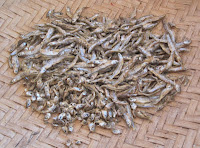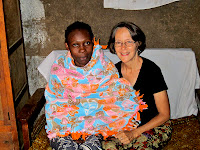July 27-July 30
Our trip to the Wagogo Music Festival began shortly after
7am Friday morning with Fred as our driver. Nicole and her parents were the
first to be picked up. Her parents are visiting from Oregon and are very down-to-
earth people. I rode next to Nicole’s mom and we talked as though we had been
friends for years. Her father is a pastor and wears a “perma-smile”. It became
a joke since we never saw him without a smile on his face during the entire
weekend.
Nicole, who I met through Nie and Jonas, organized our
trip to the Music Festival. She is from Seattle and been in Tanzania for 2
years. She will return to the states in September to obtain her Masters in
Public Health. Nicole has lived in different parts of Tanzania. This will be
her 4th trip back to Chamwino.
 |
| Dodoma Parliament Building |
The Wagogo Music Festival is held in Chamwino, a small
village just outside of Dodoma. Dodoma is the national capital of Tanzania;
even though the commercial capital is Dar es Salaam and many government offices
are still located there. Located in the central part of Tanzania, Dodoma has a
population of about 350,000 people. The city appeared cleaner and more modern
than other large cities I have visited in Tanzania. The architecture of the
government building appeared to be somewhat unique and contemporary in style
and the main road was lined with street lights, the first I have seen.
Other travelers on our 12 hour journey included Danny
(Daniela), a social worker from New Zealand. She has been here 7 months working
first, at an orphanage and currently, with a start-up NGO opening a home for
abused girls. Danny resides in the NGO facility. She spent the last 4 months
caring for an abandoned infant. I had never heard of a situation where a
volunteer became the caretaker of an infant. I got the impression that minimal procedures
transpired to allow this fostering relationship. The little girl was recently
adopted by relatives of the mother. Admittedly, it has been a difficult
adjustment for Danny, since the child was in her care 24/7 for so many months.
Danny is probably in her early 30’s and has no children of her own. I can relate
to the emotional drain of volunteers who stay here for an extended period of
time but Danny’s experience pales in comparison to other stories I have heard.
She will be returning to New Zealand for
a much deserved R & R.
Elsa was the last to join us. Originally from Australia,
she raised her family in the US. Elsa is a free spirit, teaching in the Moshi
area for the past year with no definitive plans for the future. The 12 hour
road trip coupled with the diversity of backgrounds, allowed us many opportunities
to share our stories and experiences.
 |
Singista Rock Formations
On way to Dodoma |
Three medical students from Canada chose to take the bus and
meet us in Dodoma. Our van felt like a daladala after adding 3 passengers!
Fortunately, the ride to Chamwino was only 30 minutes. Our accommodation for
the weekend was a guest house. The rooms were furnished with double beds, a
mosquito net, and a small table. Located at the end of the hall we found a
sink, a communal squatty potty and a shower room. The shower and sink proved to
be useless. The buckets of water placed near the sink confirmed for us that
there was no running water. In addition,
the buckets did not appear to be very clean so we held off taking showers until
we returned home. The guest house sounded like an echo chamber and although
spared from the early morning roosters of Soweto; the 2 male staff were up by
6:00am, their voices reverberating throughout the halls. As they say, “You get
what you pay for.” Molly and I shared a room for under $3.50 per night for each
of us.
We had not stopped for dinner before arriving in Chamwino
and were all quite hungry. Walking thru the village, we stopped at the site of
the festival and met Kedmon, the festival organizer.
 |
| Kedmon (center) |
Nicole learned of the music festival through Kedmon, a friend
and member of her church in Seattle. He was born and raised in Chamwino and is
a member of the Wagogo tribe. Currently, he studies ethnomusicology while
pursuing his doctorate in Music Education at Seattle Pacific College. He also
teaches at the University of Washington. Kedmon has a home in Chamwino. He and
his wife and their two children have spent the last 2 months in Chamwino. The
family plans to return to Tanzania after Kedmon finishes his education. He will
teach at a university and continue his plans to build a Wagogo Cultural Arts
Center in Chamwino.
Because it was quite late we only found one small
restaurant still open. They only had the ingredients for Chips Mayai. This
traditional meal of eggs and fries cooked together is similar to an omelet and
quite delicious. Apparently the pan they cooked our meal in had previously been
used for a meat dish. This was confirmed later by the server and not
appreciated by the vegetarians in the group. The meals had a meat flavor and
the eggs were not thoroughly cooked. Adding
a beer with our dinner made the meal more palatable and provided a great night
cap to a long day!
Wagogo musicians and dancers kicked off the Music
Festival with a parade through Chamwino around 8am Saturday morning. Chamwino
is a small village with dirt roads. It is more spread out than some of the
areas I have visited around Moshi. Most houses are made of cement and have electricity.
I could see myself spending more time in a place like Chamwino. I observed a
strong sense of community among the residents. The village felt very safe and
the people were engaging and hospitable.
The parade ended at the town center which consisted of a
town hall, a stage and several outbuildings. A roped-off, tented area with
chairs had been set up. We registered and received a “Special Guest” badge which
allowed us access to the tented seated as well as food. A morning snack of
mandazi (lightly sweet donut) and chai was available; lunch and dinner were
also served both days to all the performers and special guests. A grant from
the Swiss Embassy covered much of the cost of the festival and housing for the
performers.
 |
| Women Drummers |
The Wagogo people are one of three indigenous tribes that
reside in the Dodoma area. Their numbers are estimated to be over 1.3 million.
They live a mostly rural lifestyle making their livelihood from agriculture and
herding. Gogo music has gained an international following. 375 artists from 8 villages
performed at the 5th annual event.
Documentarians filmed the event and ethnomusicologists from universities
in Europe and the US also attended.
We were treated like royalty, to the point that it was
almost embarrassing. When the festival started, Nicole was included in the
introductions, and our group was recognized by the emcee. Nicole is well-loved
by the community of Chamwino. Watching her interact with the local people must
have made her parents so proud. When we got in line for food we were ushered to
the front, served and then escorted to a private room in the village hall where
we ate. Several local people affiliated with the festival were always making
sure we were well taken care of.
Attendance numbered in the 100’s. The chairs under the tent were always
full; others packed tightly around the stage and outside areas; children perched
on tree limbs.
 |
| Hand-made Instruments |
 |
| Foot Tambourine - (see video) |
The Festival lasted until 5pm with a 2 hour break for
lunch. All the performers appeared very comfortable on stage as though it was
second nature to them. From child to adult, none showed any signs of being
afraid or nervous. Their smiles were genuine and sincere and you knew they
loved what they were doing. It was amazing to experience the culture of these
people through their dances and songs. The performers sang in Swahili or their
tribal language. Kedmon explained that many performances told a story while
others expressed a message about topics such as AIDS and drugs. One act even
had a political bend blaming politicians for many of the country’s problems. I
have attached video clips from several of the performances. (Each video is
about 30 seconds.)
Saturday evening Kedmon escorted us on a tour of the
village. It was like a progressive dance-a-thon. Stopping at the houses where
the performers stayed, each group sang and danced for us and invited us to
participate. It was a magical night of
celebration with the brightness of the moon lighting our path from house to
house.
Sunday morning we attended a service at the Anglican
Church. It was built by the pastor of the Seattle church attended by Nicole and
Kedmon. Their pastor, who Nicole had not seen in two years, attended the
festival and gave the sermon at church. The church service lasted 3 hours and
included several of the performing groups plus two baptisms. Once again, we
were all introduced to the congregation. Despite the length of the service, it
was uplifting and engaging with a contagious energy that stayed with us
throughout the day. This video shows the congregation leaving the church.
http://youtu.be/Wwht4rDnfAE

After the service we went to the home of one of Nicole’s
friends for tea and then headed back to the festival for another music-filled
day. The festival wrapped up about 6:00pm. We all gathered at Kedmon’s house
before dinner and met his colleagues from the University of Washington. As
always, the conversation was lively and stimulating.
Because our drive home would take 12 hours, we decided to
leave around 6:30 Monday morning. Danny rode with Molly and me on the return
trip while the others traveled to other destinations. Our ride home included a
stop for a camel ride which was great fun, although very touristy!
 |
| Fred, Me, Molly, Danny |
 |
| Me & My New Friend |
On the way home the traffic police stopped us constantly
always wanting to know the same thing. Where had we come from? Where were we
going? A check of the car’s registration followed the questioning. Unfortunately,
one of the stops was not a routine check; Fred had been speeding. Surprisingly,
with all the stories of corruption and bribery, no ticket was given. Fred
explained that he had not seen the speed sign nor had he driven this road
before. We were all relieved.
We arrived home tired and hungry but delighted for the
opportunity to experience a culture so different from our own. The friendliness
and welcoming nature of the Chamwino people further enhanced an already incredible
weekend. It was more than obvious that the Wagogo love their culture and
appreciate the importance of preserving their traditions. The Wagogo performers expressed their music
with an uninhibited liveliness and enthusiasm that both mesmerized and energized
everyone present.
 |
| Children mesmerized! |

.JPG)



.JPG)









.JPG)



















.JPG)














